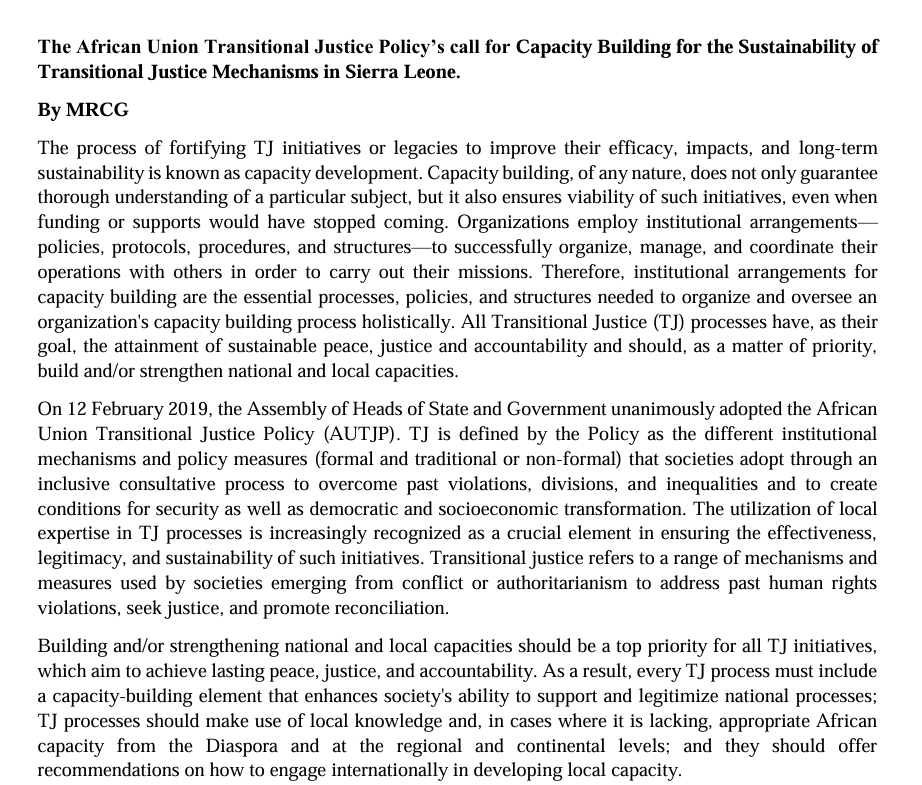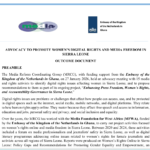The process of fortifying TJ initiatives or legacies to improve their efficacy, impacts, and long-term
sustainability is known as capacity development. Capacity building, of any nature, does not only guarantee
thorough understanding of a particular subject, but it also ensures viability of such initiatives, even when
funding or supports would have stopped coming. Organizations employ institutional arrangements—
policies, protocols, procedures, and structures—to successfully organize, manage, and coordinate their
operations with others in order to carry out their missions. Therefore, institutional arrangements for
capacity building are the essential processes, policies, and structures needed to organize and oversee an
organization’s capacity building process holistically. All Transitional Justice (TJ) processes have, as their
goal, the attainment of sustainable peace, justice and accountability and should, as a matter of priority,
build and/or strengthen national and local capacities.
On 12 February 2019, the Assembly of Heads of State and Government unanimously adopted the African
Union Transitional Justice Policy (AUTJP). TJ is defined by the Policy as the different institutional
mechanisms and policy measures (formal and traditional or non-formal) that societies adopt through an
inclusive consultative process to overcome past violations, divisions, and inequalities and to create
conditions for security as well as democratic and socioeconomic transformation. The utilization of local
expertise in TJ processes is increasingly recognized as a crucial element in ensuring the effectiveness,
legitimacy, and sustainability of such initiatives. Transitional justice refers to a range of mechanisms and
measures used by societies emerging from conflict or authoritarianism to address past human rights
violations, seek justice, and promote reconciliation.










Leave a Reply